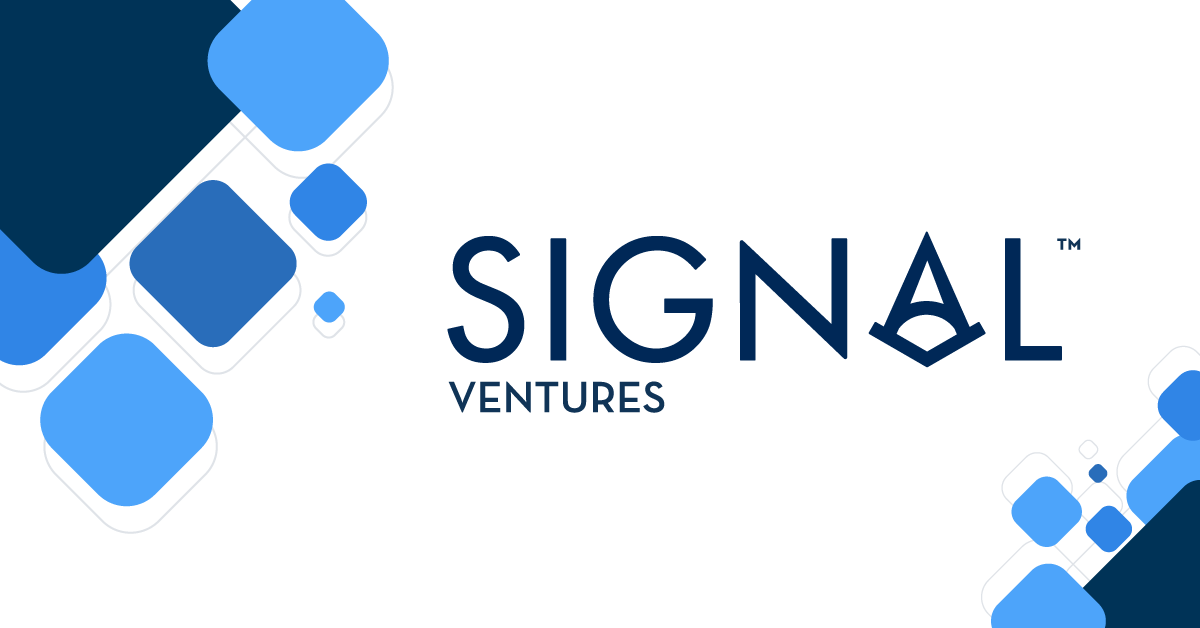Signal Ventures Boosts Maritime Tech Ecosystem with New Investments
Signal Ventures, the investment arm of the Signal Group, is seeking entrepreneurs and start-ups in the maritime sector to join its ecosystem of technology partners. Led by Greek entrepreneur Ioannis Martinos, Signal Ventures focuses on B2B SaaS, advanced analytics, optimisation and artificial intelligence technologies for the maritime and trade sectors.
Signal Ventures offers its partners access to unique data processing capabilities, vessel port calls, emissions, port and weather information, venture capital, mentoring and hands-on team building support. We drive incorporation, accounting, legal and HR activities so that founders can focus on their product.
The ecosystem already includes technology startups active in ship bunkering, oil and dry bulk analytics, and marine weather.
Following the success of early private deals and the growing activity in the maritime startup scene, Signal Ventures has been set up to support technology innovation. Its team draws on talent from across the Signal Group and is coordinated by the recently appointed Nikolas Pyrgiotis, Vice President of Technology Ventures.
In 2019 the overall maritime tech sector was estimated to be worth USD106bn, expected to rise to US$278bn by 2030*. Startup driven innovation will be core to this growth.
Announcing the renewed drive for complementary skills and fresh talent at the launch of Signal Ventures, Signal Group CEO Ioannis Martinos said:
“The maritime tech space has grown significantly over the past three years, but 2021 will see more opportunities than ever before. However, it’s going to be tough for any startup without long-term solid backing, infrastructure or a unique proposition behind it. Signal Ventures, with its shipping industry pedigree, is committed to the sector: we’ll work with entrepreneurs with great ideas and exciting technologies. Our world-class support is already turning ideas into long term success.”
Signal Ventures has already successfully incubated OilX, a UK oil analytics company; invested in and collaborated with Bunker Metric, a bunker procurement optimization startup; and Swedish weather data provider Storm Glass. In addition, two entrepreneurs in residence are working in a venture studio with the Signal team to develop and take to market new products.
Florian Thaler, founder and CEO of OilX, on the value of Signal’s support said:
“Signal has been a true partner through the entire startup process and continues to be a key technology partner of OilX. Signal provided us with superior data and technology combined with capital and strong commercial advisory. That allowed us to take our idea first to MVP and ultimately to market at a substantially accelerated pace.”
Signal Ventures has also gained experience in large technology deals, as the lead seed investor in Nutonomy, a successful autonomous vehicle startup, at a 10x return and Omnition, a SaaS platform to monitor microservices, at a 7x return.
* [Source:Inmarsat: Trade 2.0: How Startups are driving the next generation of maritime trade]

Creating a sustainable world requires us to embark on a journey towards a zero emission future, where every step is a commitment to preserve our planet for future generations.
Albert Greenway
Environmental Scientist, Sustainability Expert
Increased Use of Renewable Energy:
Shipping companies are embracing renewable energy sources to power onboard systems and reduce emissions during port operations. Solar panels and wind turbines are being installed on vessels to generate clean energy, reducing reliance on auxiliary engines, and cutting down emissions. Shore power facilities in ports allow ships to connect to the electrical grid, eliminating the need for onboard generators while docked.
Collaboration and Industry Partnerships:
Recognizing that addressing emissions requires collective action, shipping companies, governments, and organizations have formed partnerships and collaborations. These initiatives focus on research and development, sharing best practices, and promoting knowledge transfer. Joint projects aim to develop and deploy innovative technologies, improve infrastructure, and create a supportive regulatory framework to accelerate the industry's transition towards a greener future. The Zero Emission Shipping - Mission Innovation.
To pave the way for a greener future in shipping, the availability of alternative fuels plays a vital role in their widespread adoption. However, this availability is influenced by factors such as port infrastructure, local regulations, and government policies. As the demand for cleaner fuels in shipping rises and environmental regulations become more stringent, efforts are underway to improve the accessibility of these fuels through infrastructure development, collaborations, and investments in production facilities.
Liquefied Natural Gas (LNG) infrastructure has seen significant growth in recent years, resulting in more LNG bunkering facilities and LNG-powered vessels. Nonetheless, the availability of LNG as a marine fuel can still vary depending on the region. To ensure consistent availability worldwide, there is a need for further development of LNG supply chains and infrastructure. For biofuels, their availability hinges on production capacity and the availability of feedstock. Although biofuels are being produced and utilized in various sectors, their availability as a marine fuel remains limited. Scaling up biofuel production and establishing robust supply chains are imperative to ensure wider availability within the shipping industry.Hydrogen, as a fuel for maritime applications, is still in the early stages of infrastructure development. While some hydrogen vessels have been tested or introduced in the first quarter of last year, the infrastructure required for hydrogen production and distribution needs further advancement.
Ammonia, as a marine fuel, currently faces limitations in availability. The production, storage, and handling infrastructure for ammonia need further development to support its widespread use in the shipping industry.Methanol, on the other hand, is already a commercially available fuel and has been used as a blend with conventional fuels in some ships. However, its availability as a standalone marine fuel can still be limited in certain regions. Bureau Veritas in October 2022 published a White Paper for the Alternative Fuels Outlook. This white paper provides a comprehensive overview of alternative fuels for the shipping industry, taking into account key factors such as technological maturity, availability, safety, emissions, and regulations.

Creating a sustainable world requires us to embark on a journey towards a zero emission future, where every step is a commitment to preserve our planet for future generations.
Albert Greenway
Environmental Scientist, Sustainability Expert
Increased Use of Renewable Energy:
Shipping companies are embracing renewable energy sources to power onboard systems and reduce emissions during port operations. Solar panels and wind turbines are being installed on vessels to generate clean energy, reducing reliance on auxiliary engines, and cutting down emissions. Shore power facilities in ports allow ships to connect to the electrical grid, eliminating the need for onboard generators while docked.
Collaboration and Industry Partnerships:
Recognizing that addressing emissions requires collective action, shipping companies, governments, and organizations have formed partnerships and collaborations. These initiatives focus on research and development, sharing best practices, and promoting knowledge transfer. Joint projects aim to develop and deploy innovative technologies, improve infrastructure, and create a supportive regulatory framework to accelerate the industry's transition towards a greener future. The Zero Emission Shipping - Mission Innovation.
To pave the way for a greener future in shipping, the availability of alternative fuels plays a vital role in their widespread adoption. However, this availability is influenced by factors such as port infrastructure, local regulations, and government policies. As the demand for cleaner fuels in shipping rises and environmental regulations become more stringent, efforts are underway to improve the accessibility of these fuels through infrastructure development, collaborations, and investments in production facilities.
Liquefied Natural Gas (LNG) infrastructure has seen significant growth in recent years, resulting in more LNG bunkering facilities and LNG-powered vessels. Nonetheless, the availability of LNG as a marine fuel can still vary depending on the region. To ensure consistent availability worldwide, there is a need for further development of LNG supply chains and infrastructure. For biofuels, their availability hinges on production capacity and the availability of feedstock. Although biofuels are being produced and utilized in various sectors, their availability as a marine fuel remains limited. Scaling up biofuel production and establishing robust supply chains are imperative to ensure wider availability within the shipping industry.Hydrogen, as a fuel for maritime applications, is still in the early stages of infrastructure development. While some hydrogen vessels have been tested or introduced in the first quarter of last year, the infrastructure required for hydrogen production and distribution needs further advancement.
Ammonia, as a marine fuel, currently faces limitations in availability. The production, storage, and handling infrastructure for ammonia need further development to support its widespread use in the shipping industry.Methanol, on the other hand, is already a commercially available fuel and has been used as a blend with conventional fuels in some ships. However, its availability as a standalone marine fuel can still be limited in certain regions. Bureau Veritas in October 2022 published a White Paper for the Alternative Fuels Outlook. This white paper provides a comprehensive overview of alternative fuels for the shipping industry, taking into account key factors such as technological maturity, availability, safety, emissions, and regulations.





















